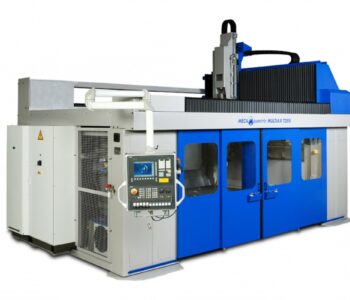 Automotive
Automotive
How To Select A Heavy Duty Truck Tarps: A Simple Guide To Follow
- by John Mack
In the world of hauling, it’s imperative that your goods are safe from the elements. That‘s where truck tarps enter—the unglamorous heroes which keep your cargo dry, safe, and secure, regardless of rain or road. However, with an abundance of choices out there, selecting the correct truck tarp is overwhelming.
What Are Truck Tarps and Why Do You Need Them?
A truck tarp is a heavy-duty covering used to shield cargo during transportation. It’s your first line of defense against rain, sun, wind, dust, and debris. Whether you’re hauling construction materials, agricultural goods, or even personal items, a truck tarp keeps everything secure and intact.
Without a tarp, your load is exposed to damage, which may translate to expensive repairs or losses. In addition, having a well-covered load means you are in line with safety regulations and will not be fined. In short, truck tarps are a must for anyone who has to transport goods safely.
Things to Consider When Selecting a Truck Tarp
Not all truck tarps for sale are created equal. To find the right one for your specific needs, you’ll want to consider several factors:
1. Material
Truck tarps come in different materials, each with its own strengths. Here are the most common ones:
- Vinyl: Vinyl tarps are durable, waterproof, and resistant to UV rays and mildew. They’re perfect for heavy-duty loads like construction materials or machinery.
- Polyethylene (Poly Tarps): These are light, inexpensive, and waterproof, making them perfect for lighter weights or temporary usage.
- Canvas: Canvas tarps are ventilated and best used to cover items such as furniture or fruits. They‘re just not as waterproof as vinyl or poly tarps, though.
- Mesh: Mesh tarps offer ventilation, making them perfect for carrying such items as gravel, sand, or landscape material where air flow is desired.
Choose a material that aligns with the type of cargo you’re transporting and the weather conditions you’re likely to encounter.
2. Size
It is important to get the appropriate size tarp. If you have a small tarp, it will not cover your load completely. A tarp that is too large may be impossible to secure adequately, causing it to flap and wear. Measure your trailer or truck bed and add the height of your load to make sure you choose a tarp large enough to cover your load appropriately.
3. Thickness
The thickness of a tarp is usually expressed in “mil,” an abbreviation for millimeters. Heavy-duty tarps (e.g., 18 mil and heavier) are more durable and suitable for heavy-duty applications. Lighter tarps (e.g., 5-10 mil) are lighter and more maneuverable but might not hold up in harsh conditions.
If you’re hauling materials that require maximum durability—think construction tools or industrial equipment—opt for a thicker tarp. For lighter loads, a thinner tarp should do the trick.
4. Weather Resistance
Weather resistance is a key consideration. Look for tarps that are waterproof, UV-resistant, and windproof. This ensures your cargo stays protected whether you’re driving through a rainstorm, under the blazing sun, or against strong gusts.
For regions that get a lot of rain or snow, a waterproof vinyl tarp is your best bet. For warmer climates, UV-resistant tarps are your best option to avoid sun damage from long-term exposure.
5. Tie-Down Options
A tarp is only as effective as its capacity to remain in position. That‘s why tie-down choices are important. Most truck tarps have pre–installed grommets, D-rings, or ropes for tying them down securely to your truck bed or trailer. Ensure the tarp you select has strong tie-down points that won‘t tear or rip when subjected to pressure.
If you‘re moving cargo on a regular basis, it’s worth the investment to buy bungee cords or ratchet straps to make securing quicker and more consistent.
6. Intended Use
Consider what you will be using the tarp for. Are you moving sensitive items such as furniture or fruits? Or are you moving coarse, heavy loads such as gravel and metal machinery?
Various cargos call for different tarps:
- Heavy-duty loads: Use heavy vinyl tarps.
- Breathable protection: Canvas tarps for crops or plants.
- Ventilation: Mesh tarps for loose materials.
- Cost–effective: Lightweight poly tarps for small, less stressful jobs.
7. Budget
Truck tarps are available in various prices, so plan your budget before shopping. Remember that although cheaper tarps can prove to be cost-effective initially, they might not be as durable or effective under harsh conditions. Paying a little extra for a superior tarp may pay off in the long run by saving you money on replacements.
Final Thoughts
Selecting the correct truck tarp is not as difficult as it may appear. Using considerations such as material, size, thickness, weather resistance, tie-down capability, and usage, you can select a tarp that will fit your cargo and transportation perfectly.
Remember, a good truck tarp for sale is an investment in safety, efficiency, and peace of mind. Whether you’re a professional trucker or just someone moving goods occasionally, taking the time to choose the right tarp will make your life a whole lot easier—and your cargo a whole lot safer. Happy hauling!









